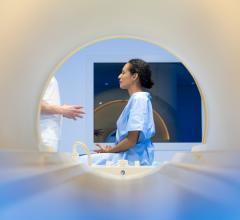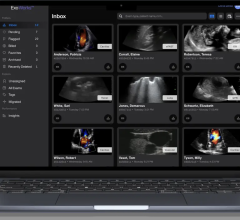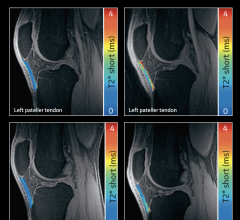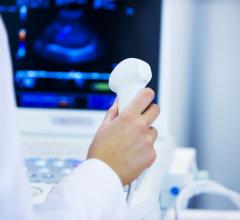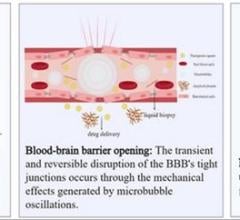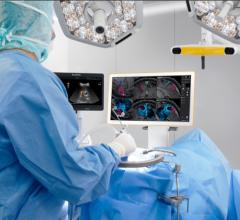
Women's Imaging Center at Pennsylvania Hospital (Pennsylvania, PA), Windsong Radiology Group, P.C. (Williamsville, NY), Charlotte Radiology Center (Charlotte, NC), Capital Imaging (Albany, NY), Athens Regional Breast Health Center (Athens, GA)
There were notable advances last year in diagnosing and treating breast cancer due in part to the widespread adoption of effective diagnostic tools such as digital mammography, ultrasound, breast MR and PET/CT. Innovation in technology, however, also stirred up controversy in 2007, in particular over the efficacy of computer-aided detection (CAD) as a second read for digital mammography.
As we look ahead to what is to come in the new year, Imaging Technology News and Outpatient Care Technology, its sister publication, have teamed up to highlight breast cancer centers that are making a difference in diagnosing and treating breast cancer. We asked readers to submit nominations of worthy facilities to recognize based on their achievements in innovation, operational efficiency, customer service and teamwork. From there, the editors chose five to recognize as “The Most Influential Women’s Centers of 2008.” Take a look — these are the ones to watch.
The Women’s Imaging Center at Pennsylvania Hospital (Pennsylvania, PA)
As the nation’s first hospital, Pennsylvania Hospital has consistently provided a full array of diagnostic and therapeutic medical options and remains an important teaching institution. The Women’s Imaging Center offers breast imaging services with Siemens’ digital screening and diagnostic mammography with CAD (iCAD) and breast ultrasound. The center has multiple minimally invasive breast biopsy devices, including stereotactic-core biopsy, vacuum-assisted ultrasound-guided core biopsy (primarily Suros ATEC and Celero), ultrasound-guided removal of benign masses and cryoablation, as well as advanced imaging and biopsy of abnormalities within the axilla. In addition, breast MRI and MRI-guided core biopsies, featuring the Sentinelle Vanguard system and Invivo DynaCad system, at Spruce MR, as well as PET-CT, are a part of the daily evaluation of patients with breast cancer and other diseases of the breast. The Women’s Imaging Center is increasingly involved in clinical research and residents’ education.
By becoming a fully digital center, clinicians can reportedly provide faster exam times and patient throughput. The additional time allows technologists and radiologists to spend more quality time with each patient. As one of the busiest women’s imaging centers in the Philadelphia region, clinicians perform more than 100 diagnostic and screening exams daily, as well as multiple biopsies and MRIs each day. Use of the RIS system and PACS systems reportedly reduces medical errors. The introduction of an automated registration kiosk also has improved patient throughput.
Pennsylvania Hospital provides immediate results for all screening and diagnostic mammograms, and all patients receive one-on-one interactions with the radiologist. Additional views, ultrasound and most biopsies are performed the same day so that there are fewer callbacks and patients are informed of the findings and recommendations more quickly. Patient brochures, information packets and videos/DVDs are available. The complete continuum of care is augmented by the care provided by the Joan Karnell Cancer Center, including outreach programs, community programs and treatment options and support. Daily and weekly interactions between administration and the clinicians allows a close working environment with the goal of providing the best solutions.
Windsong Radiology Group, P.C. (Williamsville, NY)
Windsong Radiology Group (WRG) offers stereotactic core biopsy. It is equipped with CAD, color, PET/CT, helical CT, 64-slice CT, dedicated breast MRI and performs biopsies. Its newest upgrade to the PET/CT has helped address both innovation and efficiencies. With the extended field-of-view of the new scanner, the group has been able to decrease scanning time from 20 minutes for a full-body scan down to about 12 minutes. With PET/CT the group is also better able to accommodate almost twice the amount of patients on a given day. Bilateral breast MRI allows scanning of both breasts simultaneously in the same amount of time. This has reportedly been helpful in identifying unsuspected multifocal and multicentric disease. The clinicians at WRG also utilize a CAD system for breast MRI, which performs a digital second reading.
MRI-guided breast biopsy has been key to identifying breast lesions, thereby allowing for biopsy, that may not have be visualized on mammography or ultrasound. This has also allowed for smaller lesion detectability, which translates to earlier detection. To phase out the analog machines, the group recently installed new digital mammography systems.
Digital images are available online and reports to referring MDs are sent through PACS. This serves the patient and referring physician by streamlining the processing and turn-around time, speeding up diagnosis and access to care. The digitally based systems ultimately aides with improved images too.
WRG provides face-to-face results to relieve anxiety for patients. Their policy is to never say “no” to add-on patients or patients needing immediate exams. All patients who undergo diagnostic breast MR receive a personalized call at their home from the reading radiologist with an interpretation. Educational videos for procedures help patients understand examinations before they go in to the procedure.
The group grew from seeing 35 patients a day with four team members 21 years ago to seeing almost 700 patients a day with 200 team members today. The radiologists meet every morning to update on activities, schedules and other issues, in addition to quarterly meetings.
Charlotte Radiology Center (Charlotte, NC)
This center provides breast MRI, diagnostic and screening mammography, ultrasound, CT, X-ray and more. Almost all of the radiologists have received subspecialty fellowship training following their residencies in diagnostic radiology.
Private, secluded dressing rooms are designed to maximize patient comfort and efficiency. The patient can go from modality to modality without being exposed to the public or having to change. All images are instantly available on PACS. If a patient needs a diagnostic mammogram in addition to her screening mammogram, she can be scanned immediately as well as receive any additional diagnostic studies, such as ultrasound or MRI
The facility exudes a spa-like atmosphere, complete with a waterfall. There are private consultation rooms, refreshment stations with gourmet snacks, lemonade and flavored water available to everyone. The center is active in the community and interacts with breast cancer support groups.
Technologists and physicians work very closely together to achieve optimal patient throughput.
Capital Imaging
(Albany, NY)
This center provides general X-ray, fluoroscopy, mammography, ultrasound and computerized axial tomography (CT). In addition, Capital offers both a conventional, or closed, MRI imaging scanner as well as an open MRI unit, eliminating the need for re-scheduling due to discomfort.
Because teamwork is critical to effective patient care, everyone supports each other. The operations manager, for example, assists the technologist when needed and attends and gives input to the radiologist board.
Athens Regional Breast Health Center (Athens, GA)
This all-digital breast health center provides Siemens’ digital mammography, breast ultrasound and image-guided biopsies. Its new information system is integrated with its BHC to facilitate improved reports and follow- up to physicians and patients.
Through digital mammography, the center has shortened its scheduling system to allow better flow of screening and diagnostic patients within the BHC. The group recently installed a digital unit at an urgent care center and a family practice physician, allowing some of patients to get their screening mammograms closer to where they live and work, increasing the number of patients screened.
A spa-like feel and separate waiting area for the screening and diagnostic patients emphasizes comfort and privacy. The radiologist reads all diagnostic exams and delivers the results before the patients leave. Two registered nurses are available to navigate patients who require a biopsy through the steps of biopsy to breast cancer diagnosis.
A Physicians Advisory Board and the Mammography Process Team, consisting of physicians from multiple specialties, hospital staff members and the administrative team, in conjunction with the Mammography Process Team, formed the Multidisciplinary Breast Cancer Conference, which convenes every two weeks to allow physicians to discuss treatment options for newly diagnosed breast cancer patients.

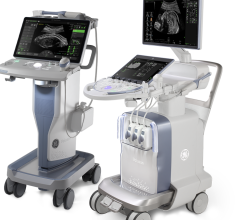
 July 19, 2024
July 19, 2024 
